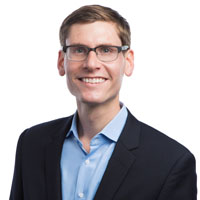The Asset Building News Week is a weekly Friday feature on The Ladder, the Asset Building Program blog, designed to help readers keep up with news and developments in the asset building field. This week's topics include poverty, public assistance, and savings.
Poverty
Pat Shellenbarger for Bridge Magazine, which provides local news for central Michigan, described the dramatic transformation one affluent woman went through in terms of her views on poverty. "If she thought about the poor at all, it was to assume they were to blame for their poverty," Shellenbarger wrote. But after a descent into poverty herself, her views evolved: "I have a new understanding of people in my position and what it's like to be underprivileged." Vox's Danielle Kurtzleben provided a national perspective on experiences like the one described in Shellenbarger's story of poverty spreading to affluent areas in her article on "the amazingly rapid suburbanization of poverty." According to the Brookings report she used as the source for the article, "The share of the poor population in distressed neighborhoods in the suburbs grew by nearly 140 percent, compared to 50 percent in urban areas." Perhaps the broadening experience of poverty will lead to a broader shift in attitudes? Is personal experience necessary or can information alone change views? The California Budget Projectjust published "Five Facts Everyone Should Know About Poverty." Fact #2: "most families living in poverty have jobs," which many of us know, but which are essential piece of information for an informed public debate about the issue
Ann-Elise Henzl reported for Milwaukee Public Radio on the "growing life expectancy gap between black and white Wisconsin women." Among the causes of the gap are "poverty, unemployment, chronic stress and low educational attainment." In one small step to addressing the growing problem, a Capitol Hill roundtable was held last week on the subject of interrupting the "poverty –to-prison pipeline." Gary Gately summarizedsome of the important points for Juvenile Justice Information Exchange.
Public Assistance
Block granting social safety net programs to states has always been a controversial proposition and recently came up again as a serious proposal in Rep. Paul Ryan's anti-poverty plan. But Jamelle Bouiethis week reexamined the dangers of block granting anti-poverty programs by reminding us of what happened when states were allowed to choose the Medicaid expansion. In many states like Mississippi that chose not to, the uninsured rate went up. In short, when the federal government allows states flexibility in administering anti-poverty programs, the poor population in many states suffers. One program that is currently block-granted to states is TANF, and the variation in that program is not always productive, as evidenced by a report this week from Bryce Covert for ThinkProgress. Tennessee implemented a costly drug testing program for recipients of TANF, presumably influenced by stereotypes about low-income people. In fact, as Covert reported, "Just one person has tested positive out of more than 800." 10 other states have laws requiring drug testing for TANF applicants.
In New Mexico, the state's governor is proposing to re-impose work requirements as a requirement to receiving SNAP. But is the labor market strong enough to support that kind of a step?
Savings
The FDIC has announced that it will launch a youth savings pilot programfor school-aged children. The program will offer financial education along with safe, low-cost savings accounts opened on behalf of the children in partnership with private financial institutions.
Richard Harris considered the potential of applying lessons learned from the New Zealand retirement savings model to the U.S. His consideration of the idea follows an event hosted last month at the Brookings Institution that explored the KiwiSaver program.
Quick Hits
Juana Summersreported on a study conducted by Johns Hopkins University researchers about the racial disparities in access to opportunity (or lack thereof) for different communities in Baltimore.
G. Wayne Miller wrote an article for the Providence Journal about the fate of Millennials looking for employment opportunities in Rhode Island and beyond.
The Center for Retirement Research at Boston College hosted the 2014 Retirement Research Consortium Meeting in Washington this week. The agenda can be found here.
